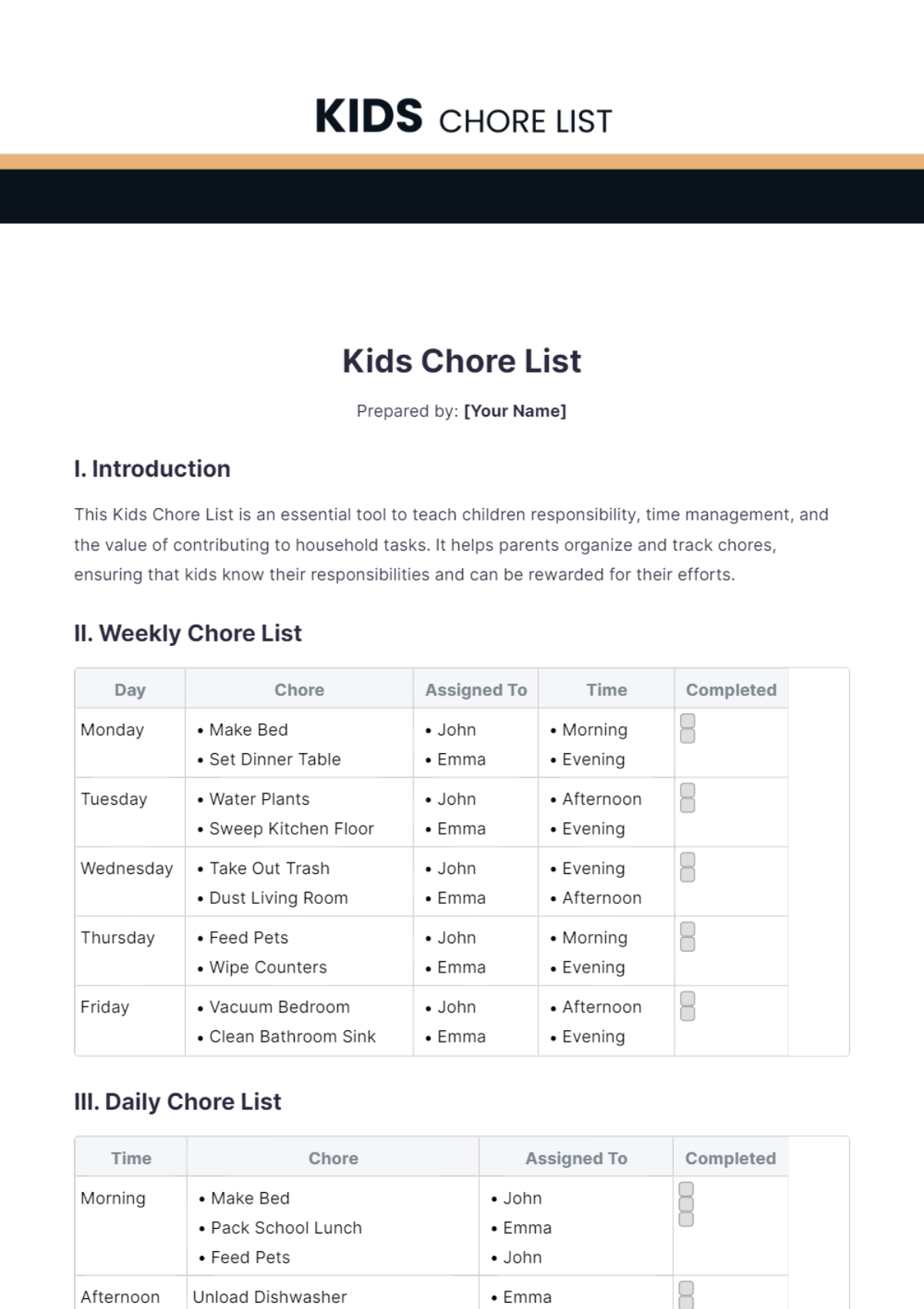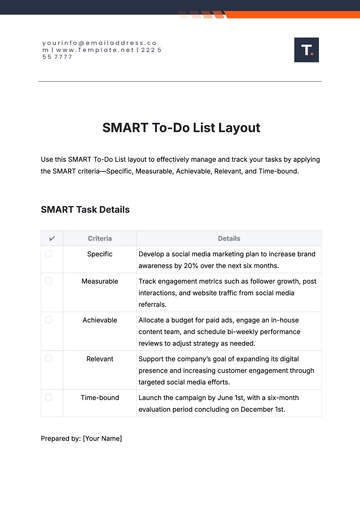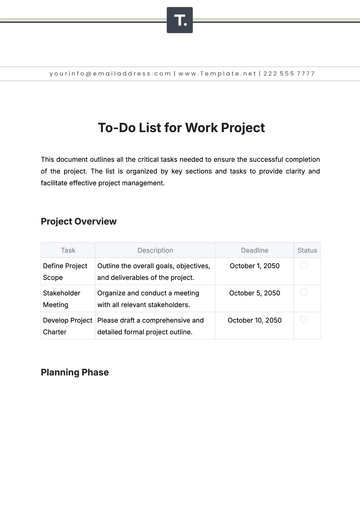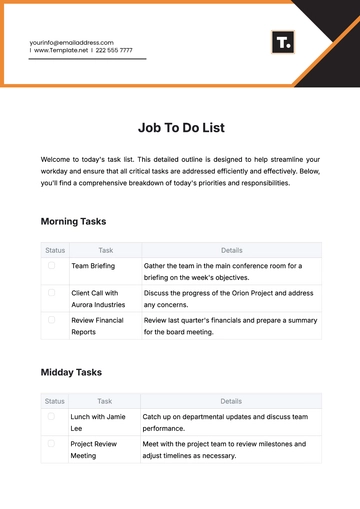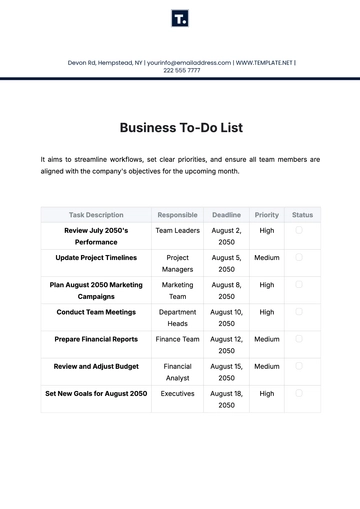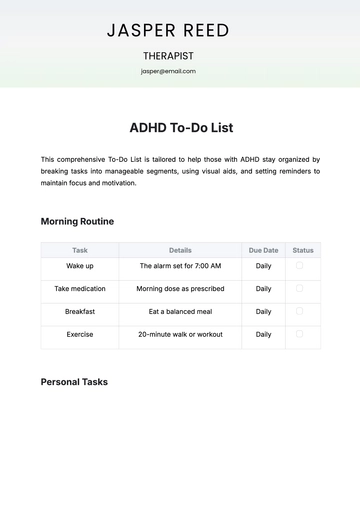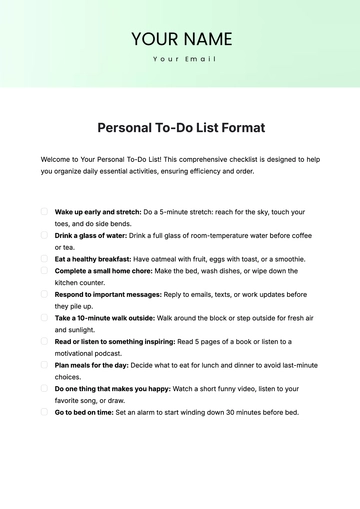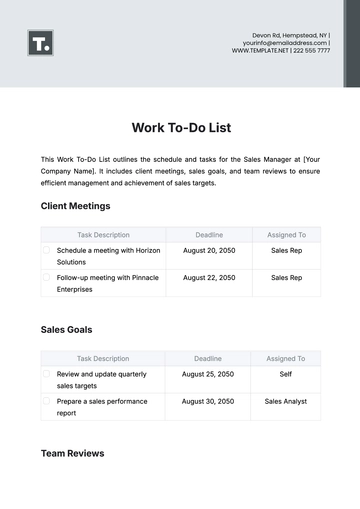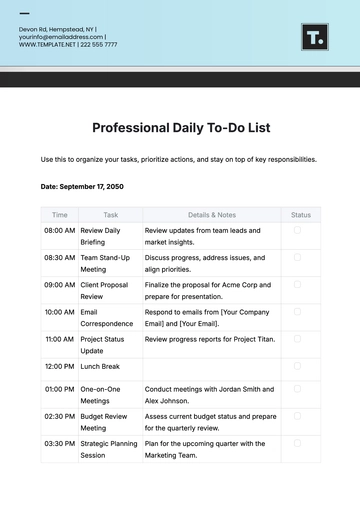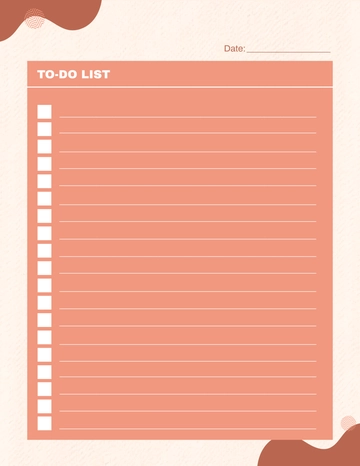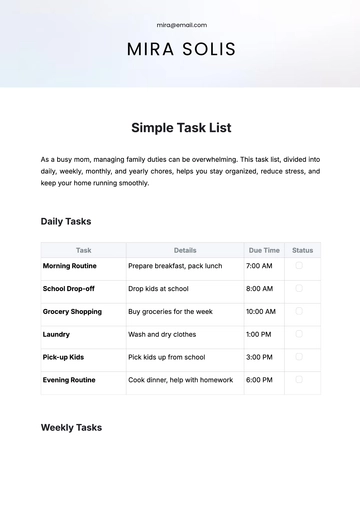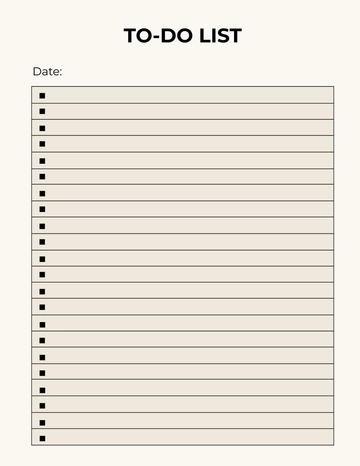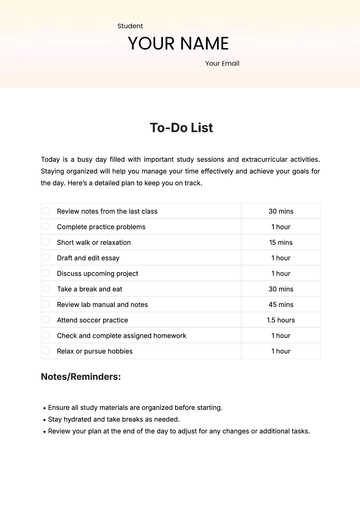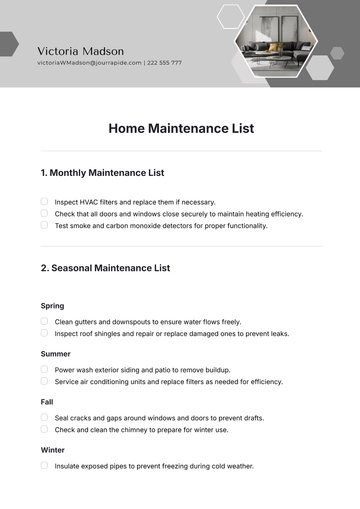Kids Chore List
Prepared by: [Your Name]
I. Introduction
This Kids Chore List is an essential tool to teach children responsibility, time management, and the value of contributing to household tasks. It helps parents organize and track chores, ensuring that kids know their responsibilities and can be rewarded for their efforts.
II. Weekly Chore List
Day | Chore | Assigned To | Time | Completed |
|---|
Monday | | | | |
Tuesday | Water Plants Sweep Kitchen Floor
| | | |
Wednesday | Take Out Trash Dust Living Room
| | | |
Thursday | | | | |
Friday | Vacuum Bedroom Clean Bathroom Sink
| | | |
III. Daily Chore List
Time | Chore | Assigned To | Completed |
|---|
Morning | Make Bed Pack School Lunch Feed Pets
| | |
Afternoon | Unload Dishwasher Do Homework | | |
Evening | | | |
IV. Responsibilities by Age Group
Age Group | Chores |
|---|
3-5 Years | Put away toys, help set the table, water plants, feed pets with supervision |
6-8 Years | Make bed, dust furniture, take out trash, help with laundry |
9-11 Years | Sweep floors, vacuum, clean bathroom sink, help with meal preparation |
12+ Years | Mop floors, clean bathroom, wash dishes, take care of younger siblings |
V. Reward System
Implementing a reward system can motivate children to complete their chores regularly and efficiently.
Number of Chores Completed | Reward |
|---|
5 | Extra 30 minutes of screen time |
10 | Choose a movie for family night |
15 | Small toy or book |
20 | Outing to a favorite place |
VI. Tips for Success
Consistency: Ensure chores are assigned and completed consistently.
Positive Reinforcement: Praise and reward children for their efforts.
Flexibility: Adjust chores based on children's age, abilities, and schedule.
Participation: Involve children in creating the chore list to give them a sense of ownership.
Clear Instructions: Provide clear and simple instructions for each chore.
List Templates @ Template.net
